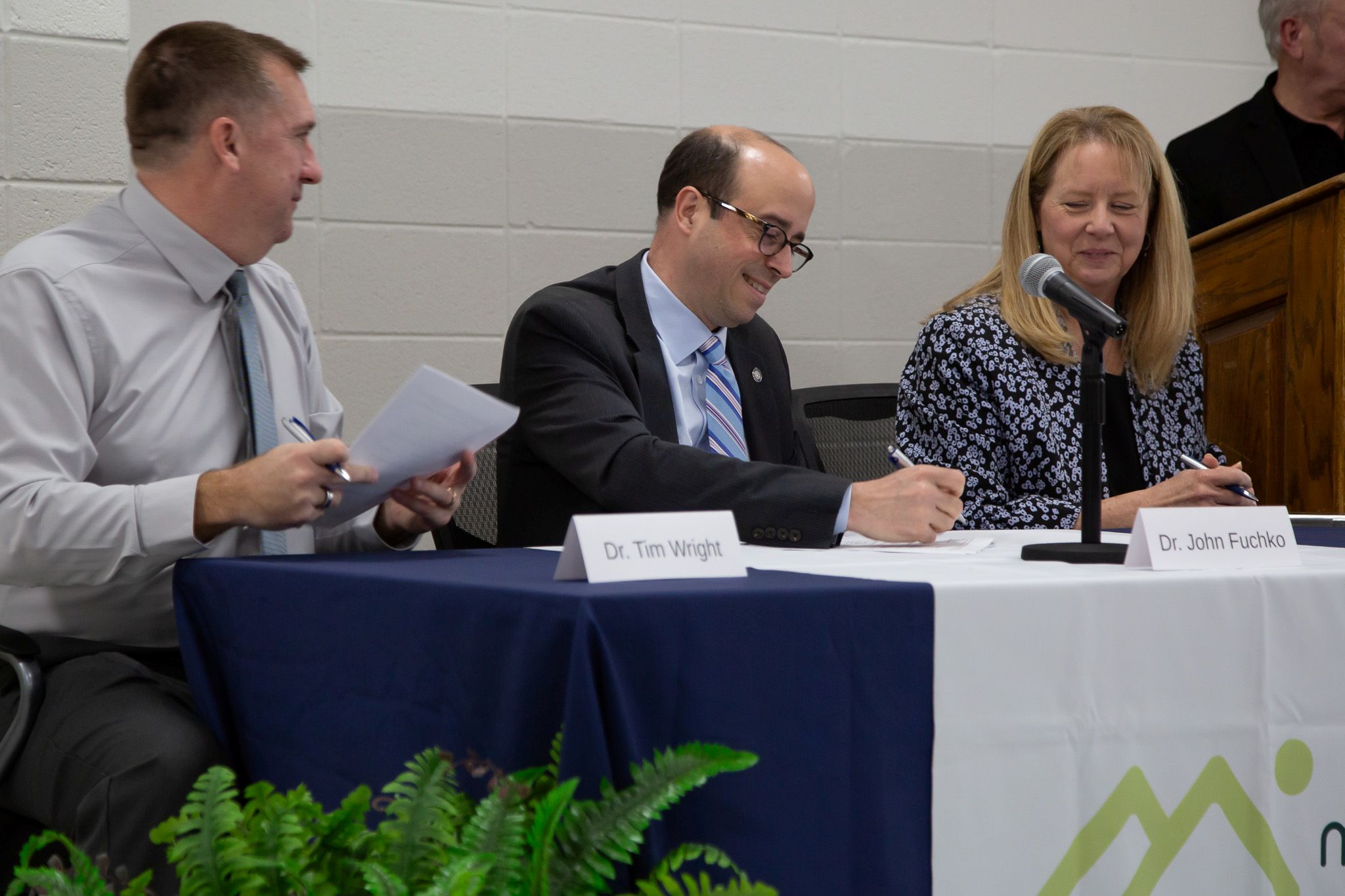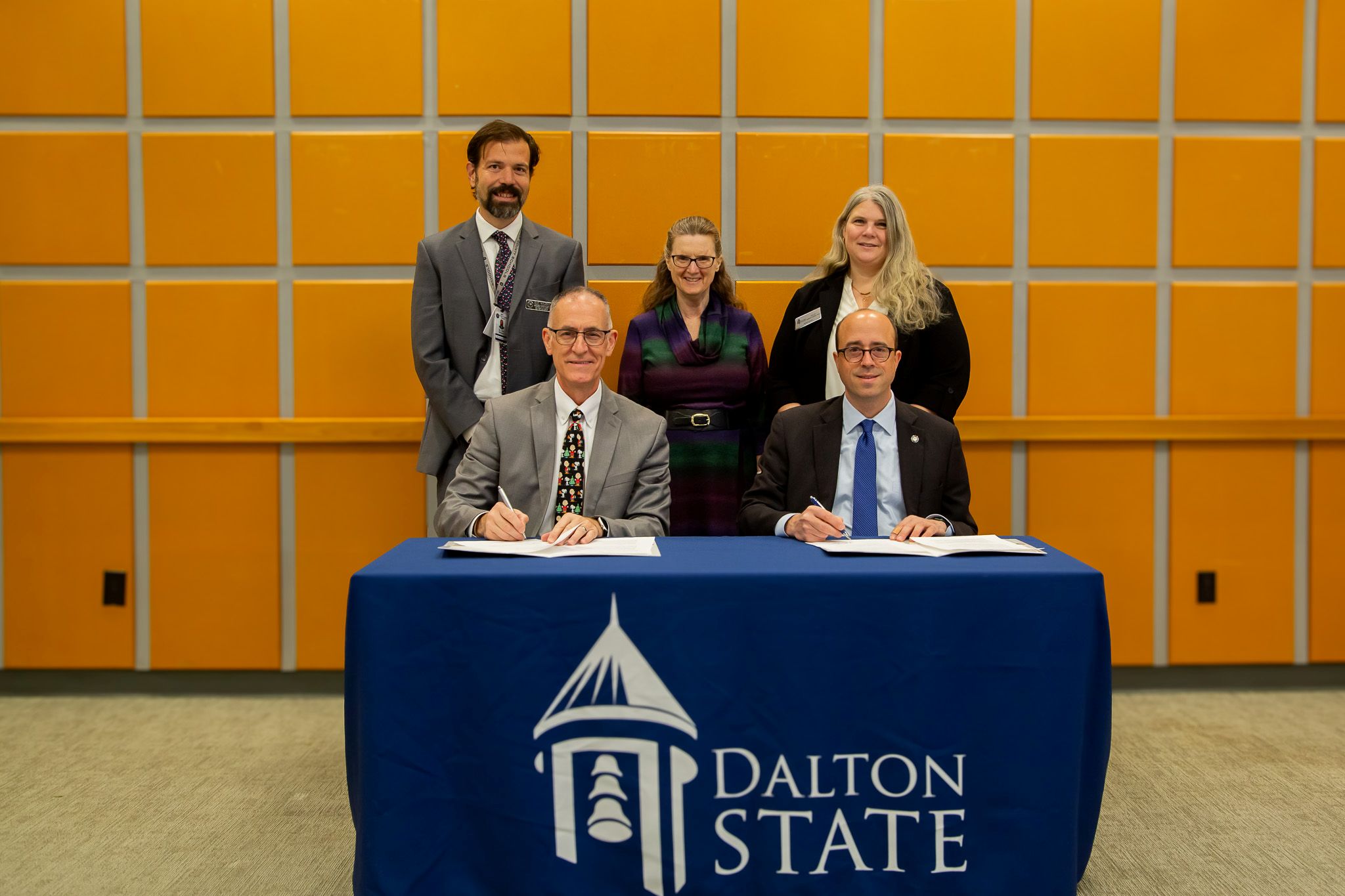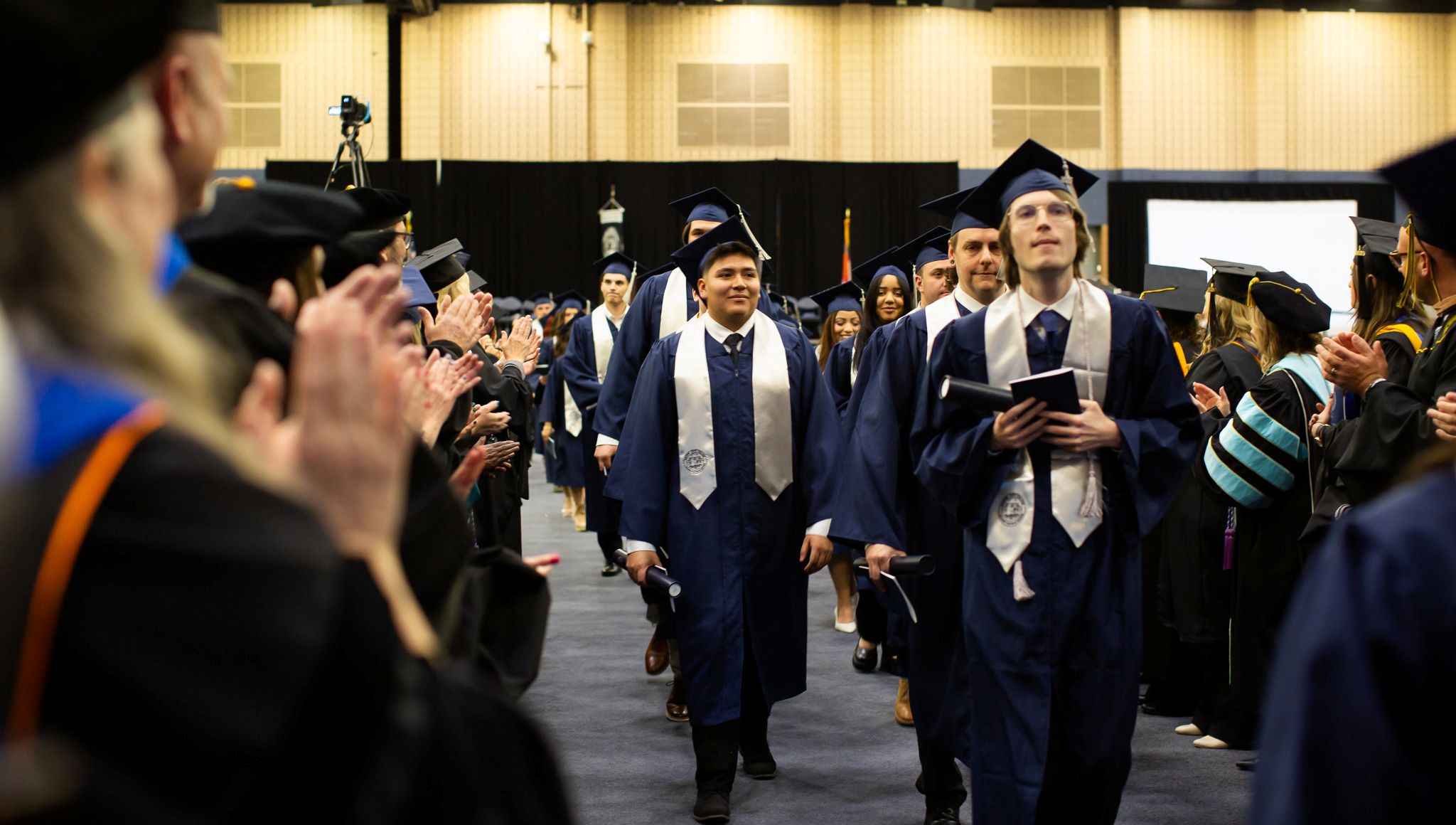Dalton State is taking a strategic approach to meet the demand for access to mental health services and promote a culture of well-being and support for students.
“Starting college can be a big transition for some people. I know when I started in 2019, my first year was rough,” said Paige Brundrett, junior at Dalton State. “Luckily, I knew that we have great resources on campus, and I took some time to go to therapy in the Dalton State Counseling Center.”
The need for access to mental health services on college campuses has continued to increase nationwide, a trend that began pre-pandemic. The number of students accessing counseling centers on college campuses increased 40% between 2009 and 2015, according to the American Psychological Association. In a post-pandemic world, this upward trend shows no signs of slowing down.
Dalton State’s Counseling Center is staffed by two licensed counselors, Jenny Guy, associate director of counseling, and Julia Flanagan, therapist. Guy and Flanagan meet with students to provide individualized and group counseling.
“A lot of our students work full- or part-time and have significant family responsibilities in addition to academics. According to a Healthy Minds study, during the 2020–2021 school year, more than 60 percent of college students met criteria for at least one mental health problem,” said Guy. “With the support from the University System of Georgia, Dalton State has been able to decrease the waitlist for counseling services on campus and offer further individualized care to meet the needs of our students.”
In 2019, the University System of Georgia appointed the USG Mental Health Task force to identify areas of need across USG institutions and recommend how to expand mental health support services for students. The Mental Health Initiative increased clinical resources to ensure every student has access to telephonic psychiatric care and clinical counseling services. The expansion also included in-person counseling options through a partnership with Christie Campus Health, a 24/7 hotline and well-being support program.
“Access to psychiatric care has been the most utilized service provided by the USG Mental Health Initiative at Dalton State,” said Guy.
BeWell@DSC is Dalton State’s campus mental health initiative and provides a variety of services, including:
- 24/7/365 Mental Health CRISIS Support Line for in-the-moment support and linkages to next steps.
- No-cost telehealth and in-person treatment sessions either on campus or in the local community provided by a network of licensed mental health clinicians.
- Virtual psychiatric appointments for assessment and medication management.
- Personal Student Navigators to assist with referral coordination and support.
- Self-directed Silver Cloud (Internet-based Cognitive Behavioral Therapy) program designed exclusively for students.
Mental health services on campus are free to students and accessible in-person or through telehealth appointments, reducing common barriers that can prevent young adults from seeking support.
“I live on campus, so having a counseling center on campus was extremely convenient,” said Brundrett, “and I didn’t have to pay anything which is a huge plus!”
Corey Creek, who graduated from Dalton State with a BS in psychology in 2021, is employed at a non-profit mental health facility in Atlanta. Creek works in the drug rehabilitation and crisis stabilization unit and witnesses first-hand the importance of mental health access for young adults.
“Some people may not understand how crucial it is to have access to mental health services during such an important and often stressful time in a young adult’s life. Access to mental health, especially free, is hard to come by,” Creek said. “By having accessible mental health resources, Dalton State is helping students create a strong mental foundation and skills to improve mental health long term.”
Taking the first step to seek mental health services can be difficult for young adults. Dalton State has taken a strategic approach to train faculty and staff who can recognize the signs of a student who may be experiencing a mental health crisis and who can work with students to help connect them to available resources.
Dalton State’s Campus Assessment Response and Evaluation (CARE) Team engages in proactive and collaborative approaches to identify and assess students who are potentially distressed or may exhibit concerning behaviors. The goal of the CARE Team is to seamlessly connect our students to the appropriate campus experts and departments. Faculty, staff and students can submit a referral to the CARE team concerning a student who may be experiencing a mental health crisis.
“The CARE Team, on Dalton State’s campus, works in tandem with the Counseling Center, many times providing the first line of resources,” said Jami Hall, assistant vice president for Student Affairs and Dean of Students. “Post-pandemic, we have seen a noticeable increase in CARE Team referrals related to mental health issues that our students are experiencing. We are fortunate to have two licensed counselors on our campus and the 24/7 counselor line provided by the USG Mental Health Initiative that provides immediate, short-term support. Unfortunately, some students do not take advantage of these resources due to stigma attached to mental health struggles.”
“Often a licensed professional is needed, other times students just need to be heard. They need resources. And they need to feel supported,” said Hall. “The CARE Team can play a pivotal role when counseling or help does not need to be the end goal. Members of the CARE Team act as campus navigators and provide not only resources on campus, but also resources off campus, so that students can be successful. More than anything, we know and understand that if a student is not mentally well, they cannot be academically well.”
The Counseling Center also hosts QPR trainings to certify faculty and staff in suicide prevention. QPR stands for Question, Persuade, Refer. Trainings teach faculty and staff how to identify when a student may be exhibiting potential risk factors, how to begin a conversation about mental health and how to connect them with the appropriate resources.
“Faculty and staff notice when a student stops coming to class, when grades drop and are often the first to hear about personal issues affecting a student,” said Guy. “If they are trained to identify these and other potential risk factors, they can potentially connect students to resources more quickly than a student might reach out on their own.”
In addition to increasing mental health services on campus, the Dalton State Counseling Center hosts Fresh Check Day, a program by the Jordan Porco Foundation. Fresh Check Day is a mental health check in with students that engages students with peer led interactive booths each with a mental health theme.
Dalton State’s first Fresh Check Day in 2021 featured a tradition from Dalton Junior College – the car smash. Students were allowed to spray paint a junk car and beat it with a sledge hammer to help relieve stress. Dalton State will host its third Fresh Check Day next month.
To learn more about mental health resources and the CARE Team at Dalton State, visit the DSCwellnesshub.com and https://daltonstate.edu/campus_life/care-team.cms.




